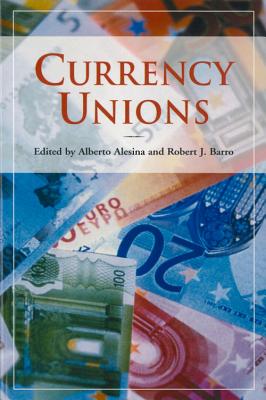

 Hoover Institution Press
Hoover Institution Press
Currency Unions


Key Metrics
- Alberto Alesina
- Hoover Institution Press
- Paperback
- 9780817928421
- 11.78 X 5.3 X 0.3 inches
- 0.42 pounds
- Business & Economics > Foreign Exchange
- English
 Secure Transaction
Secure TransactionBook Description
Author Bio
Alberto Alesina was a leader in the field of Political Economics and has published extensively in all major academic journals in economics. He has published five books and edited many more. His two most recent books are The Future of Europe: Reform or Decline, published by MIT Press, and Fighting Poverty in the US and Europe: A World of Difference, published by Oxford University Press. He was a co-editor of the Quarterly Journal of Economics for eight years and associate editor of many academic journals.
Alberto Alesina, born in Italy in 1957, was the Nathaniel Ropes Professor of Political Economy at Harvard University. He served as Chairman of the Department of Economics from 2003 - 2006. He obtained his Ph.D. from Harvard in 1986. He was also a member of the National Bureau of Economic Research and the Center for Economic Policy Research. He was a member of the Econometric Society and of the American Academy of Arts and Sciences.
He was a leader in the field of Political Economics and has published extensively in all major academic journals in economics. He has published five books and edited many more. His two most recent books are The Future of Europe: Reform or Decline, published by MIT Press, and Fighting Poverty in the US and Europe: A World of Difference, published by Oxford University Press. He was a Co-editor of the Quarterly Journal of Economics for eight years and Associate Editor of many academic journals. He has published columns in many leading newspapers around the world and has visited several institutions including MIT, Tel Aviv University, University of Stockholm, The World Bank, and the IMF.
His work has covered a variety of topics: political business cycles, the political economy of fiscal policy and budget deficits, the process of European integration, stabilization policies in high inflation countries, the determination of the size of countries, currency unions, the political economic determinants of redistributive policies, differences in the welfare state in the US and Europe and, more generally, differences in the economic system in the US and Europe, the effect of alternative electoral systems on economic policies, and the determination of the choice of different electoral systems.
Source: Harvard University Department of Economics
Videos
No Videos
Community reviews
Write a ReviewNo Community reviews